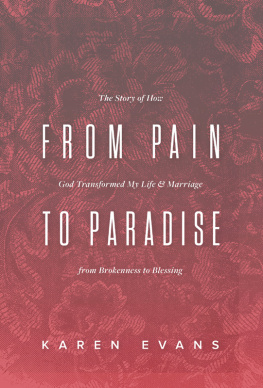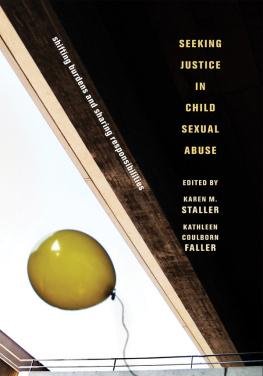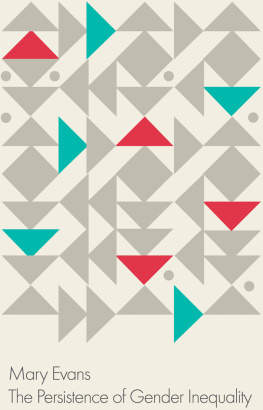
Gender Responsive Justice
At the end of the twentieth century a step-change in thinking about the offending behaviour of women began to impact on policy-makers concerned with the treatment of female offenders. A growing number of nations, states and organisations both national and supra-national in nature began to acknowledge that existing criminal justice and especially penal practices had not been sufficiently attentive to womens needs and had discriminated against women as a result.
The concept of gender-responsive justice an orientation to working with women and girls based around a consideration of the special needs of women as prisoners and their particular pathways to offending has been developed as a result. This book explores the development of this concept, the theories which have informed it, policy arenas in which gender-responsive justice has been attempted and the practices of gender-responsive justice which have subsequently emerged. This book takes a global perspective as it outlines the different international and national arenas within which gender-responsive justice gained favour and considers what has been learned from this novel and feminist-inspired approach.
Gender-responsive justice has not been without its critics, however, and this book also examines the different arguments which have been used to attack or critique the concept from varied perspectives. This book lays down a clear theoretical framework for understanding gender-responsive justice and will be useful in assessing current and future policy-making in this area.
Karen Evans is a senior lecturer in the Department of Sociology, Social Policy and Criminology at the University of Liverpool, UK. Karen has published, researched and taught in the area of Gender and Crime for more than ten years.
Routledge Critical Studies in Crime, Diversity and Criminal Justice
Edited by Sharon Hayes, University of Newcastle, Australia Patricia Faraldo Cabana, University of A Corua, Spain
The works in this series strive to generate new conceptual and theoretical frameworks to address the legal, organisational and normative responses to the challenges that diversity and intersectionality present to criminal justice systems. This series aims to present cutting-edge empirically informed theoretical works from both new and established scholars around the world.
Drawing upon a range of disciplines including sociology, law, history, economics and social work, the series encourages different approaches to questions of mobility and exclusion with a cross-section of theorists, empiricists and critical policy researchers. It will be key reading for scholars who are working in criminal justice, criminology, criminal law and human rights, as well as those in the fields of gender and LGBTI studies, migration studies, anthropology, refugee studies and post-colonial studies.
1. Gender Responsive Justice
A Critical Appraisal
Karen Evans
Gender Responsive Justice
A Critical Appraisal
Karen Evans
First published 2018
by Routledge
711 Third Avenue, New York, NY 10017
and by Routledge
2 Park Square, Milton Park, Abingdon, Oxon, OX14 4RN
Routledge is an imprint of the Taylor & Francis Group, an informa business
2018 Karen Evans
The right of Karen Evans to be identified as author of this work has been asserted by her in accordance with sections 77 and 78 of the Copyright, Designs and Patents Act 1988.
All rights reserved. No part of this book may be reprinted or reproduced orutilised in any form or by any electronic, mechanical, or other means, now known or hereafter invented, including photocopying and recording, or in any information storage or retrieval system, without permission in writing from the publishers.
Trademark notice: Product or corporate names may be trademarks or registered trademarks, and are used only for identification and explanation without intent to infringe.
British Library Cataloguing in Publication Data
A catalogue record for this book is available from the British Library
Library of Congress Cataloging-in-Publication Data
Names: Evans, Karen, 1961- author.
Title: Gender responsive justice : a critical appraisal / Karen Evans.
Description: Abingdon, Oxon ; New York, NY : Routledge, 2017. |
Series: Routledge critical studies in crime, diversity and criminal justice ; 1 | Includes bibliographical references and index.
Identifiers: LCCN 2017005713 | ISBN 9780415372244 (hardback) | ISBN 9781315231310 (ebook)
Subjects: LCSH: Female offenders. | Criminal justice, Administration of. | Feminist criminology.
Classification: LCC HV6046 .E93 2017 | DDC 364.3/74--dc23
LC record available at https://lccn.loc.gov/2017005713
ISBN: 978-0-415-37224-4 (hbk)
ISBN: 978-1-315-23131-0 (ebk)
To Eileen and Crawford
This is a book which has been a number of years in its making. It has been germinating since 2009 when I was invited to join a team of researchers based at London South Bank University who had been engaged by the UK Ministry of Justice to evaluate the pilot of a gender-specific disposal the womens conditional caution, sponsored by the then Solicitor General for the Labour Government, Vera Baird. It was my honour and delight to conduct interviews with women who had accepted such cautions and the staff with whom they were engaged in working inside Together Womens Centres across the North West of England. So, my thanks to Marisa Silvestri, Helen Easton and Roger Matthews for making this experience possible. How times have changed in the period since!
I would also like to thank Belinda Carpenter and Kerry Carrington who allowed me to spend two periods of study in Australia based at QUT, Brisbane, attached to their department and the Crime and Justice Research Centre. I would particularly like to thank Belinda and her family for hosting me in their home until I could find more permanent accommodation. I couldnt have done it without you. I have to thank too Kim and Peter Kaim, Clancy and Tayo whom I finally ended up lodging with and Tayo especially for introducing me to the artistry and insights of Kendrick Lamar. I would also like to extend my gratitude to Molly Dragiewicz who took time to watch whales with me and take me to the beach, and to all the staff at QUT who supported me when I was so far away from home.
And as for my home, thanks once again to the indomitable Dave. I was away from you for too long we will be closer together in the future.
Throughout most of history women have been largely subjected to the same punishments as men. Whether punishment involved a focus on the body as a site of discipline, the shift to incarceration, transportation, the removal of the offending body from society or the more welfare- and treatment-related models which were developed in the twentieth century, inhabiting a female body has been said to have made little to no difference to practices of punishment (White 2014:284). Those theories which have been developed to justify the chosen punishment regime in any given period have been formulated without apparent consideration as to the differing effects which forms of punishment may have on any particular social group. Indeed a universality in the offending person has been assumed so that punishment has been considered as equally applicable and appropriate for all to whom it is meted out. In all other aspects of the legal system however, principles of universality have not been applied. Clear distinctions have been made as to the legal rights enjoyed by different social groups across society, with many minorities and the entirety of the female sex denied many of the rights enjoyed universally by the male. Still, even without access to the same legal, political and social rights as her male counterparts, theories of punishment have not singled the female out for any special attention. Women have been accorded an equal responsibility to act in accordance with the rule of law, however discriminatory it may be in practice and however much it might work in opposition to their interests, and to face any subsequent punishment.










